Sớm tháo gỡ khó khăn về cắt giảm thủ tục hành chính
Chiều 15/5, các đại biểu đã tiến hành thảo luận tại tổ về dự thảo Nghị quyết của Quốc hội về cơ chế, chính sách phát triển kinh tế tư nhân.
Đại biểu Đinh Ngọc Minh (Đoàn Cà Mau) cho rằng, cộng đồng doanh nghiệp và xã hội đánh giá rất cao Nghị quyết 68, xem đây là một bước ngoặt thể chế tương tự “khoán 10” trong nông nghiệp.
 |
| Đại biểu Đinh Ngọc Minh (Đoàn Cà Mau) |
“Nếu Nghị quyết 68 được triển khai hiệu quả sẽ tạo nên làn sóng đầu tư mạnh mẽ, tạo ra của cải vật chất lớn cho quốc gia”- đại biểu Đinh Ngọc Minh nhấn mạnh.
Theo ông Minh, dù nhiều nội dung hỗ trợ doanh nghiệp về pháp lý đã được đưa vào dự thảo Nghị quyết, nhưng theo đánh giá từ doanh nghiệp, vẫn còn thiếu các cải cách quan trọng, đặc biệt là về thủ tục hành chính.
“Nghị quyết 68 nêu rõ mục tiêu “cắt giảm ít nhất 30% thời gian xử lý thủ tục hành chính, ít nhất 30% chi phí tuân thủ pháp luật, ít nhất 30% điều kiện kinh doanh” song dự thảo Nghị quyết lại chưa có quy định cụ thể nào về việc cắt giảm này”- ông Minh cho hay.
Đại biểu nhấn mạnh: “Trong tổ chức thực hiện, dự thảo Nghị quyết giao cho Chính phủ thực hiện cắt giảm thủ tục hành chính ngay trong năm 2025. Tuy nhiên tôi khẳng định, Chính phủ không thể cắt giảm thủ tục hành chính được quy định trong luật, mà chỉ có thẩm quyền cắt những thủ tục do mình ban hành như các Nghị định, Thông tư…”.
Ông dẫn chứng, hiện Quốc hội đang xem xét dự thảo Luật Tiêu chuẩn và Quy chuẩn kỹ thuật, trong đó vẫn giữ quy định phải “kèm thêm công bố hợp quy”. Trong khi tất cả các sản phẩm doanh nghiệp sản xuất đưa ra thị trường đã phải theo tiêu chuẩn, quy chuẩn, nhưng vì “cõng thêm công bố hợp quy” nên phải nuôi thêm các đơn vị kiểm thử để ra công bố hợp quy.
“Theo tính toán sơ bộ, chúng ta mất khoảng 1 tỷ USD/năm cho công bố hợp quy. Điều này cho thấy nếu không cắt giảm thủ tục ngay ở trong quá trình làm luật thì rất khó để cắt giảm”- ông Minh cho hay.
Ngoài ra, đại biểu cũng đề xuất rà soát các quy định kỹ thuật để loại bỏ các bước kiểm soát không cần thiết. Chẳng hạn, dự án không phát sinh chất thải nguy hại thì chỉ cần áp dụng tiêu chuẩn, quy chuẩn kỹ thuật, không nên bắt buộc lập báo cáo đánh giá tác động môi trường (ĐTM). Còn những dự án nhóm C nhỏ về quy mô nhưng có chất thải nguy hại thì phải được kiểm tra chặt chẽ theo rủi ro thực tế, không nên cứng nhắc theo nhóm A, B, C.
Cần mở rộng cơ chế cho thuê lại đất
Đại biểu Nguyễn Thành Trung (Đoàn Yên Bái) kiến nghị mở rộng cơ chế cho thuê lại đất trong khu/cụm công nghiệp, không phân biệt có hay không có vốn đầu tư hỗ trợ từ Nhà nước.
Ông cho rằng, theo quy định dự thảo (khoản 5 Điều 7), các khu công nghiệp, cụm công nghiệp thành lập mới, sau thời hạn 2 năm nếu không có doanh nghiệp công nghệ cao thuộc khu vực kinh tế tư nhân, doanh nghiệp nhỏ và vừa, doanh nghiệp khởi nghiệp sáng tạo thuê, thuê lại, thì chủ đầu tư kinh doanh hạ tầng khu công nghiệp, cụm công nghiệp được quyền cho các doanh nghiệp khác thuê, thuê lại.
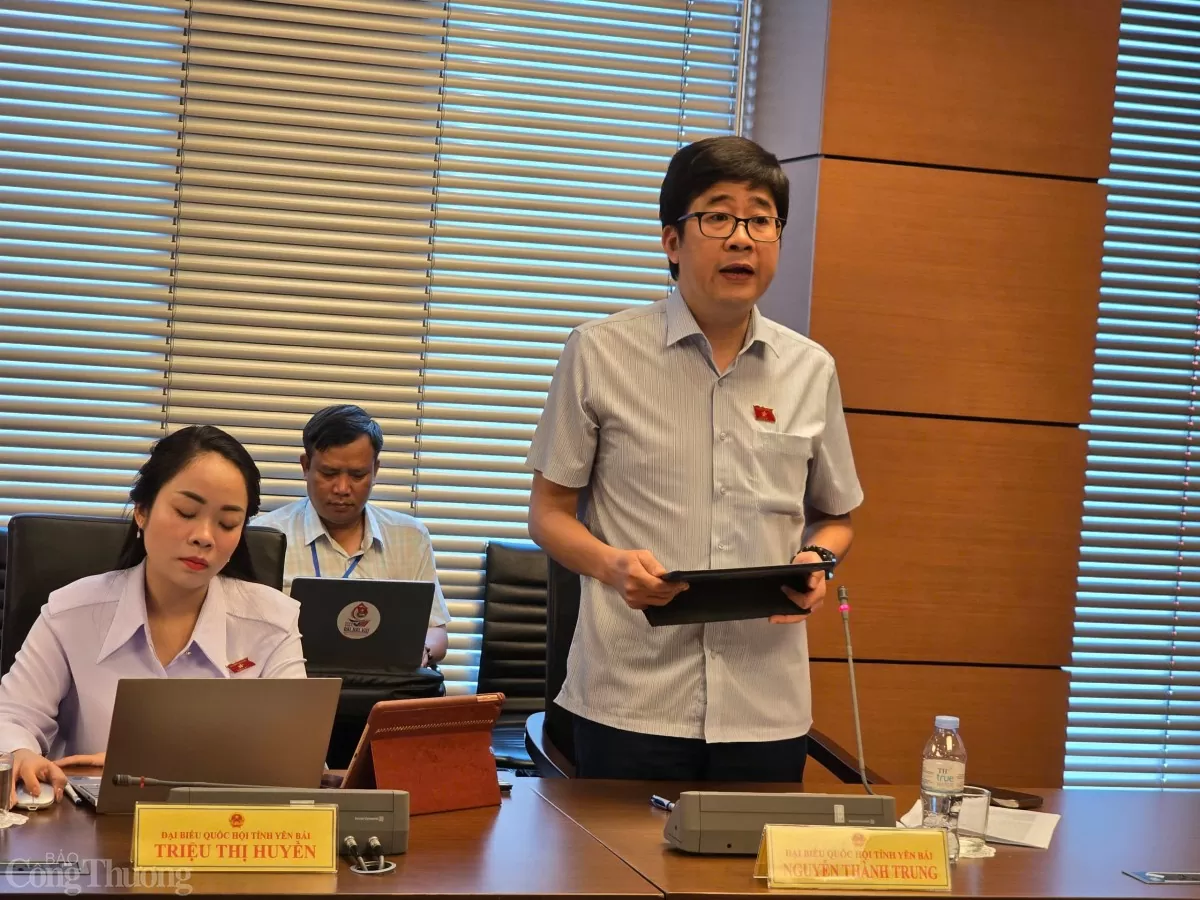 |
| Đại biểu Nguyễn Thành Trung (Đoàn Yên Bái) |
Trong khi theo khoản 4, Điều 7, các chủ đầu tư có sự hỗ trợ của Nhà nước vẫn phải giữ lại ít nhất 20ha hoặc 5% diện tích cho doanh nghiệp công nghệ cao mà không có doanh nghiệp thuê. Điều này có thể gây lãng phí lớn về tài nguyên đất đai.
Do đó, ông đề nghị cơ chế cho thuê lại phần đất chưa có doanh nghiệp công nghệ cao thuê cần được áp dụng chung cho cả khu, cụm công nghiệp có sử dụng ngân sách nhà nước trong đầu tư hạ tầng.
Góp ý vào Điều 8 quy định hỗ trợ thuê nhà, đất là tài sản công, đại biểu Đặng Ngọc Huy (Đoàn Quảng Ngãi) nêu thực tế vướng mắc khi địa phương muốn chuyển đổi trụ sở công sang làm nhà ở công vụ trong bối cảnh sáp nhập tỉnh nhưng lại chưa có hướng dẫn từ Bộ Tài chính.
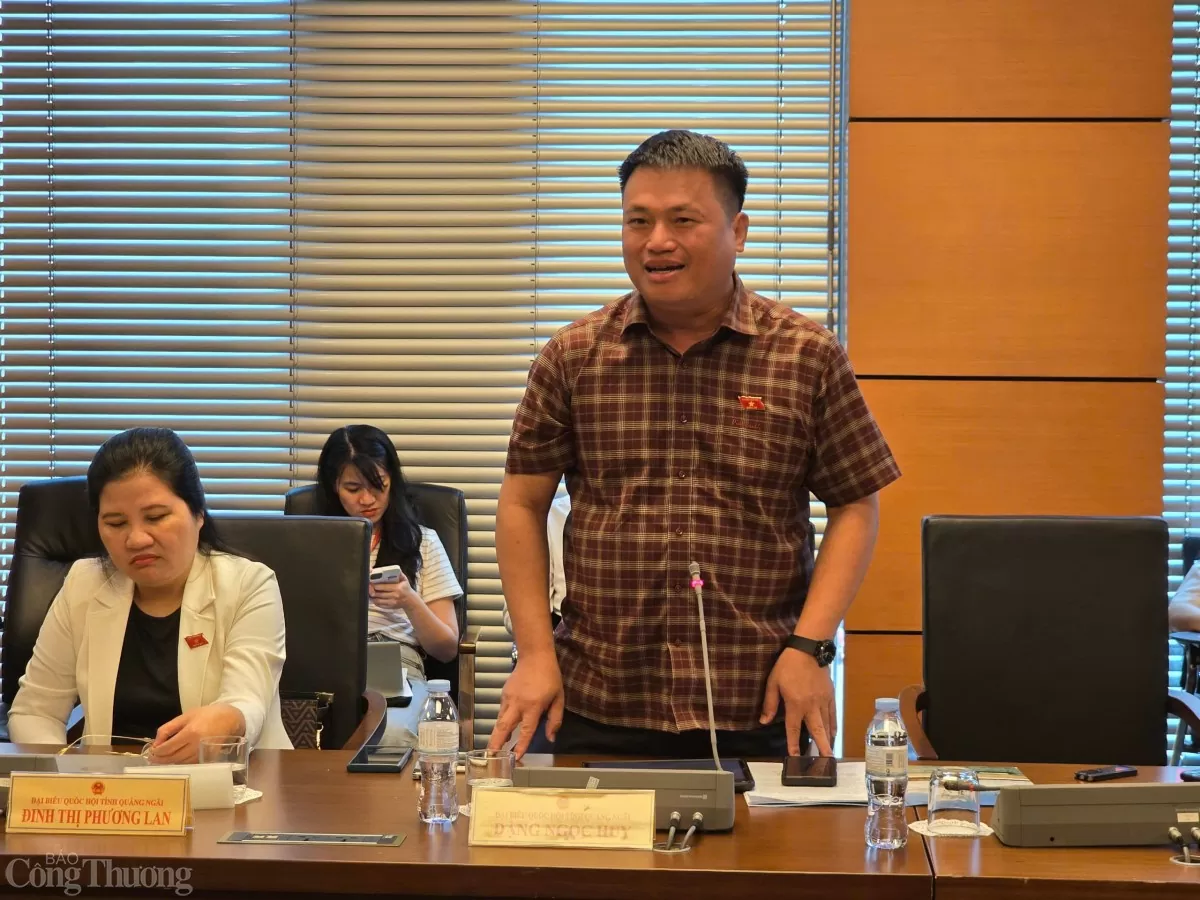 |
| Đại biểu Đặng Ngọc Huy (Đoàn Quảng Ngãi) |
Do đó, đại biểu cho rằng, quy định tại Điều 8 về việc cho doanh nghiệp thuê lại nhà, đất tài sản công là điều vô cùng khó và không khả thi.
Đại biểu đề nghị cần có quy định cụ thể, linh hoạt và thực tế hơn về việc sử dụng trụ sở, mặt bằng, tài sản công, tránh tình trạng "ghi trên giấy nhưng không thực hiện được", nhất là với doanh nghiệp tư nhân.
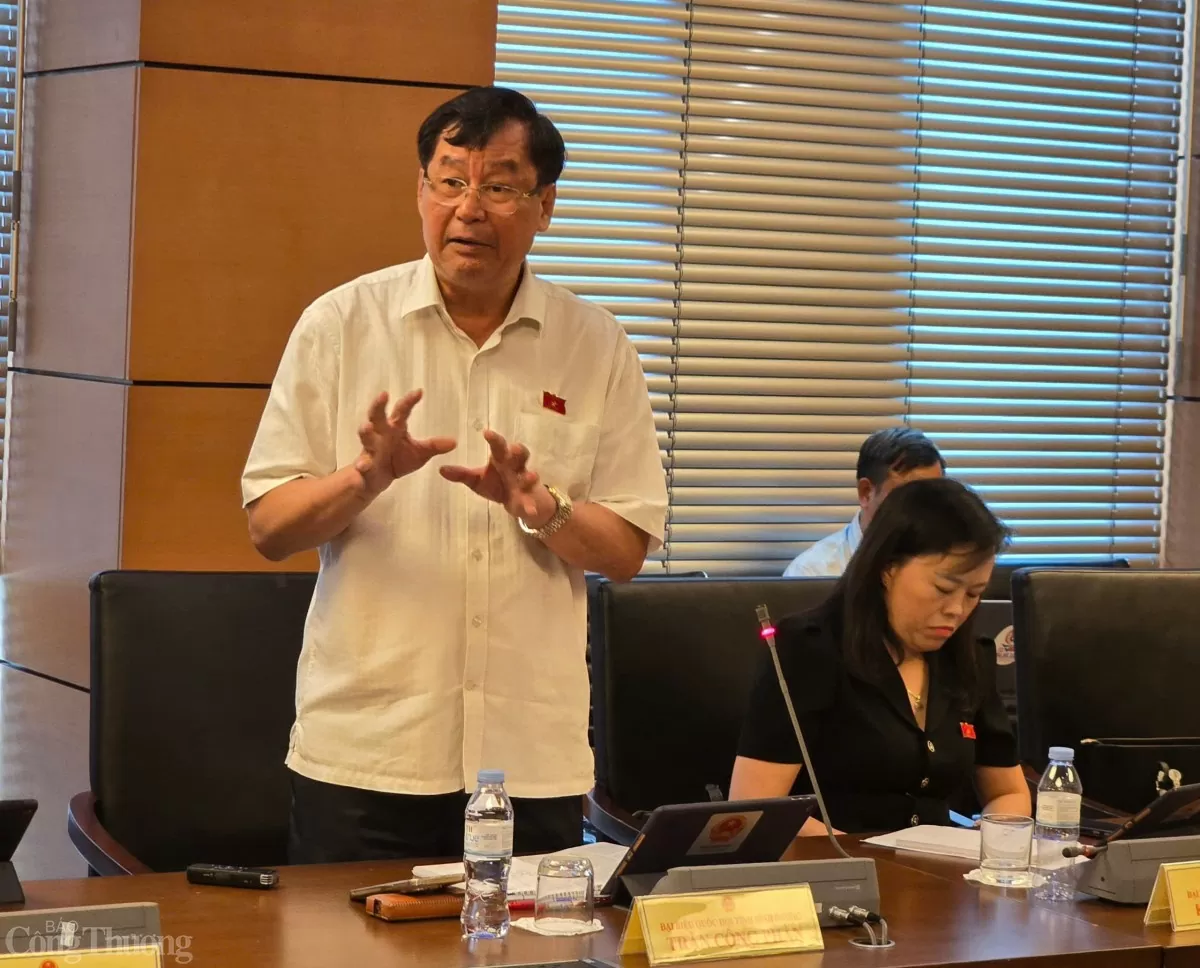 |
| Đại biểu Trần Công Phàn (Đoàn Bình Dương) |
Trong khi đó, đại biểu Trần Công Phàn (Đoàn Bình Dương) lo ngại về tính bình đẳng giữa các loại hình doanh nghiệp. Nếu dự thảo Nghị quyết chỉ ưu tiên giảm thanh tra, kiểm tra cho khu vực tư nhân thì sẽ tạo ra “tâm lý bất công ngược” giữa các thành phần kinh tế.
Về Điều 5 liên quan đến xử lý vi phạm, ông đề nghị phải rà soát lại để bảo đảm thống nhất với các luật hiện hành. Việc quy định “không xử lý hình sự cũng được” là mơ hồ, không thể có chuyện vi phạm pháp luật nhưng "có tội cũng được, không có tội cũng được". Ngoài ra, cần làm rõ thời hiệu, hiệu lực hồi tố trong xử lý để không phủ định các quy định của luật hiện hành.
Cải cách thuế: Minh bạch, nhưng cần hỗ trợ
Một nội dung khác cũng được nhiều đại biểu quan tâm là quy định không áp dụng phương pháp khoán thuế đối với hộ kinh doanh, cá nhân kinh doanh từ ngày 1/7/2026, theo khoản 6 Điều 10 Dự thảo Nghị quyết. Đại biểu Trần Quốc Tuấn (Trà Vinh) cho rằng, quy định này sẽ góp phần tăng cường công bằng, minh bạch trong nộp thuế, đảm bảo hộ kinh doanh nộp thuế đúng trên thu nhập thực tế.
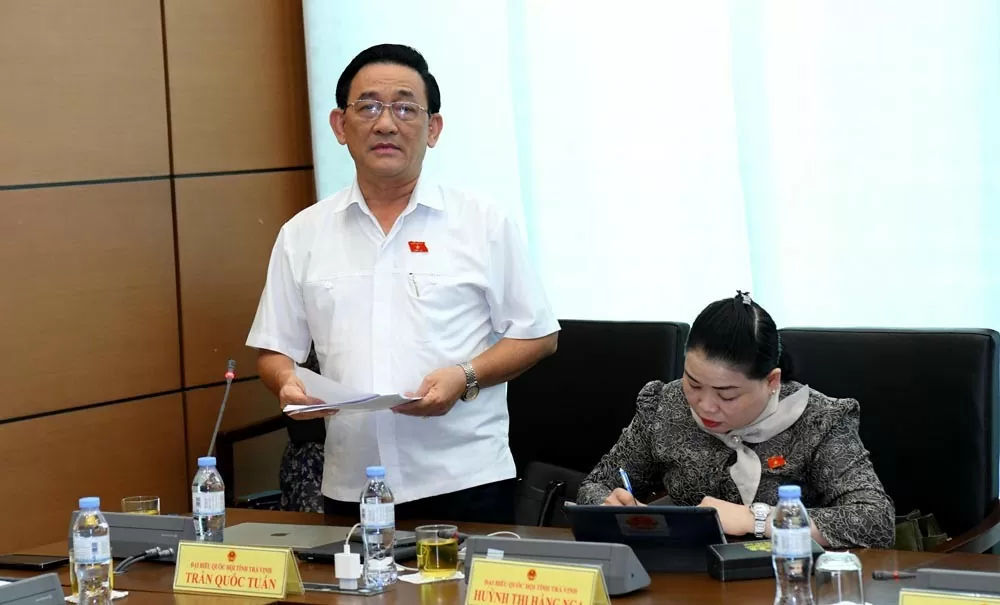 |
| Đại biểu Trần Quốc Tuấn (Đoàn Trà Vinh). Ảnh: ĐN |
Tuy nhiên, ông cũng cảnh báo rằng sự thay đổi này sẽ tạo ra một loạt bất cập mới nếu không có sự chuẩn bị kỹ lưỡng. “Hộ kinh doanh sẽ phải thực hiện các thủ tục phức tạp hơn, phải có kế toán, sổ sách và kỹ năng khai thuế, điều mà không phải ai cũng sẵn sàng hoặc đủ điều kiện”, ông Tuấn phân tích.
Vì vậy, ông đề xuất cần có giải pháp hỗ trợ cụ thể, như tập huấn, hướng dẫn chi tiết, minh bạch về thủ tục thuế, đồng thời đẩy mạnh ứng dụng công nghệ thông tin để cả hộ kinh doanh và cơ quan thuế dễ dàng thao tác và kiểm tra. Trong đó, đặc biệt cần triển khai các giải pháp thanh toán không dùng tiền mặt để thuận tiện và kiểm soát hiệu quả hơn.
| Bên cạnh đó, các đại biểu cũng tập trung góp ý về các nội dung như: Vị trí, chức năng của lực lượng Việt Nam tham gia hoạt động gìn giữ hòa bình Liên hợp quốc; chính sách của Nhà nước; quản lý nhà nước về tham gia hoạt động gìn giữ hòa bình Liên hợp quốc; lực lượng Việt Nam tham gia hoạt động gìn giữ hòa bình Liên hợp quốc; thẩm quyền, quy trình cử, điều chỉnh, gia hạn nhiệm kỳ công tác, rút lực lượng vũ trang và lực lượng dân sự… |
Nguồn: https://congthuong.vn/nghi-quyet-68-buoc-ngoat-the-che-nhu-khoan-10-cho-kinh-te-tu-nhan-387798.html


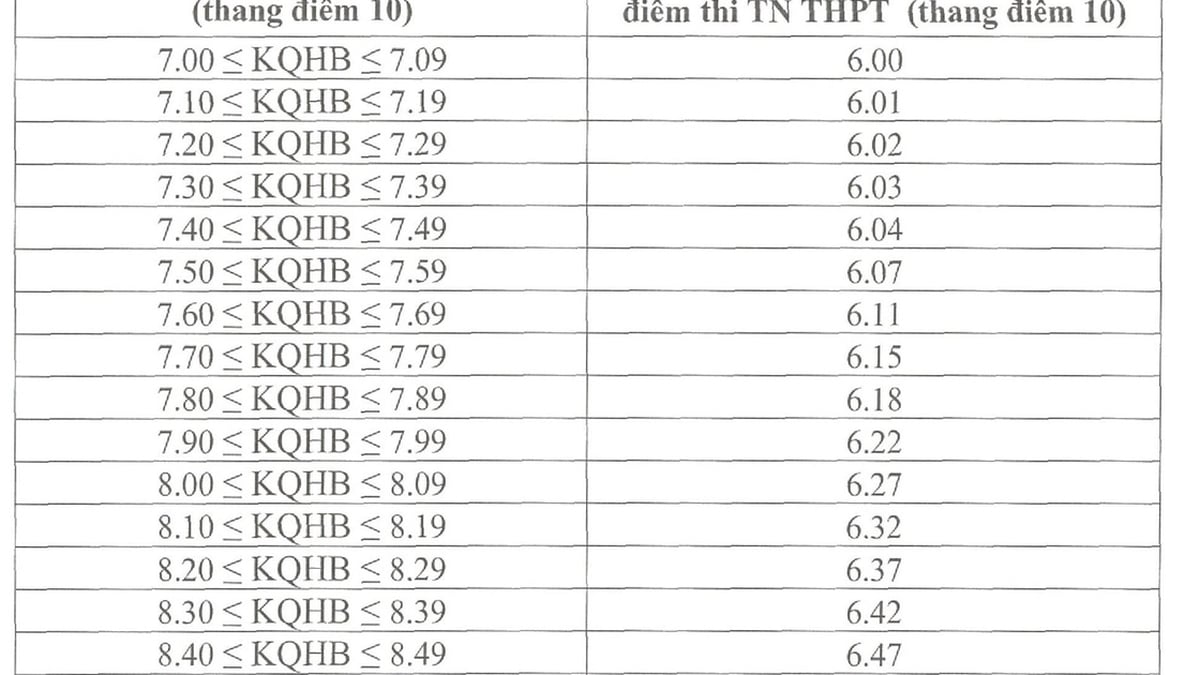
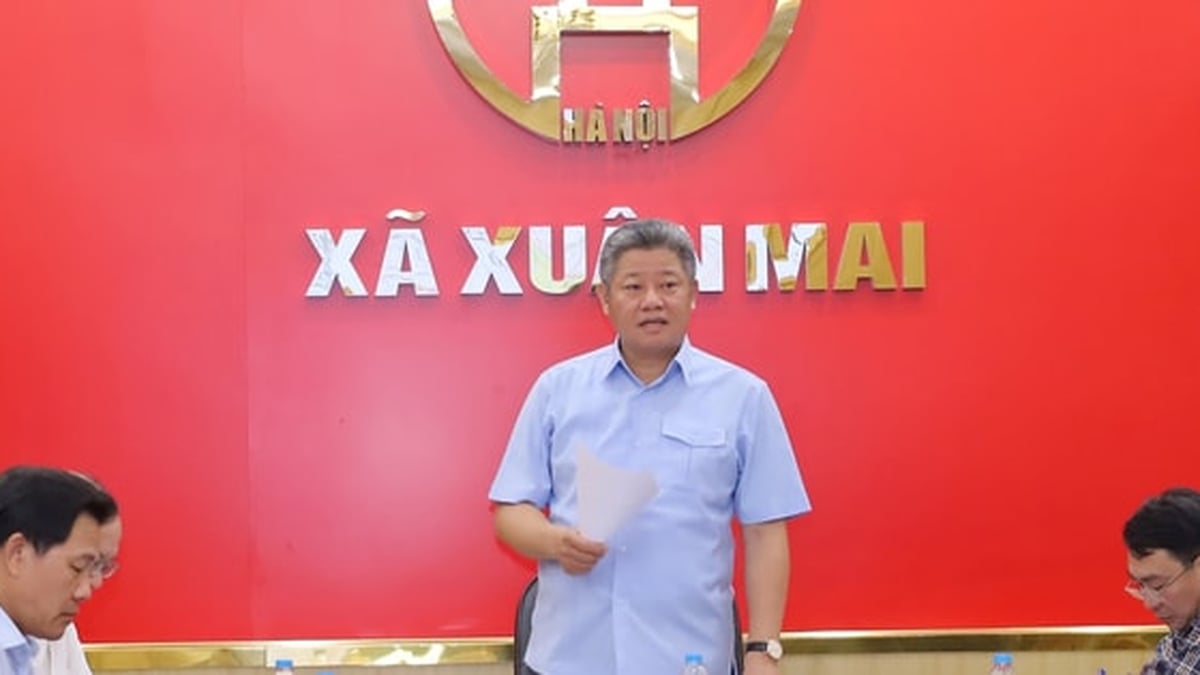
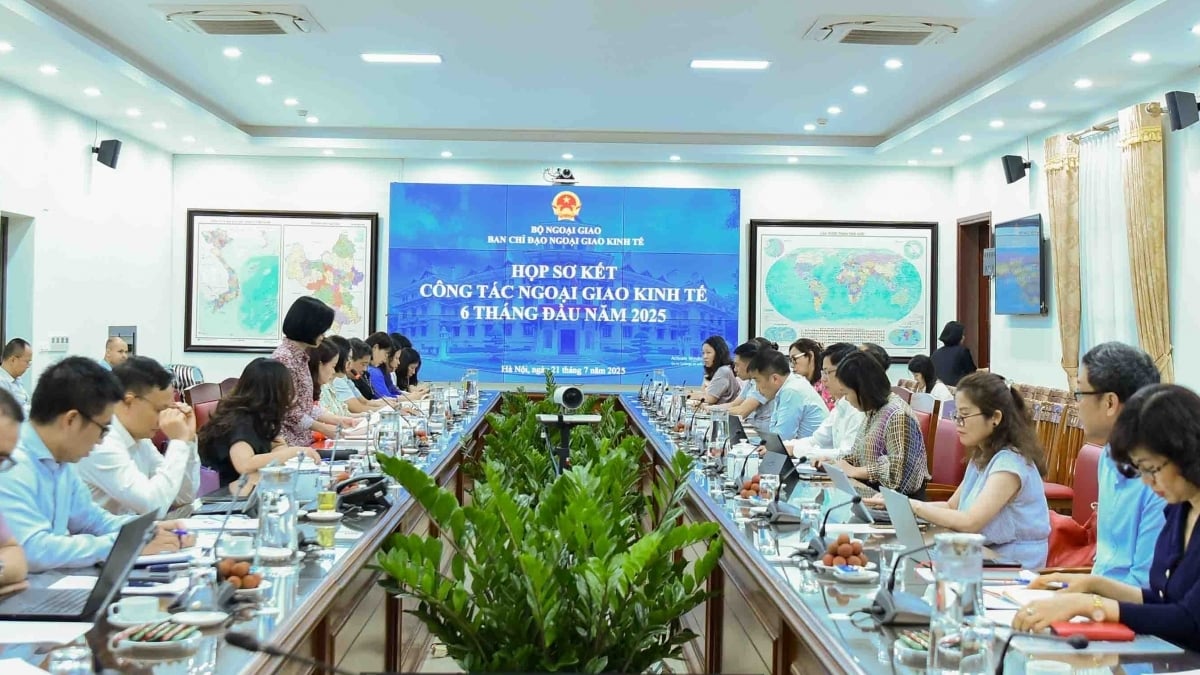
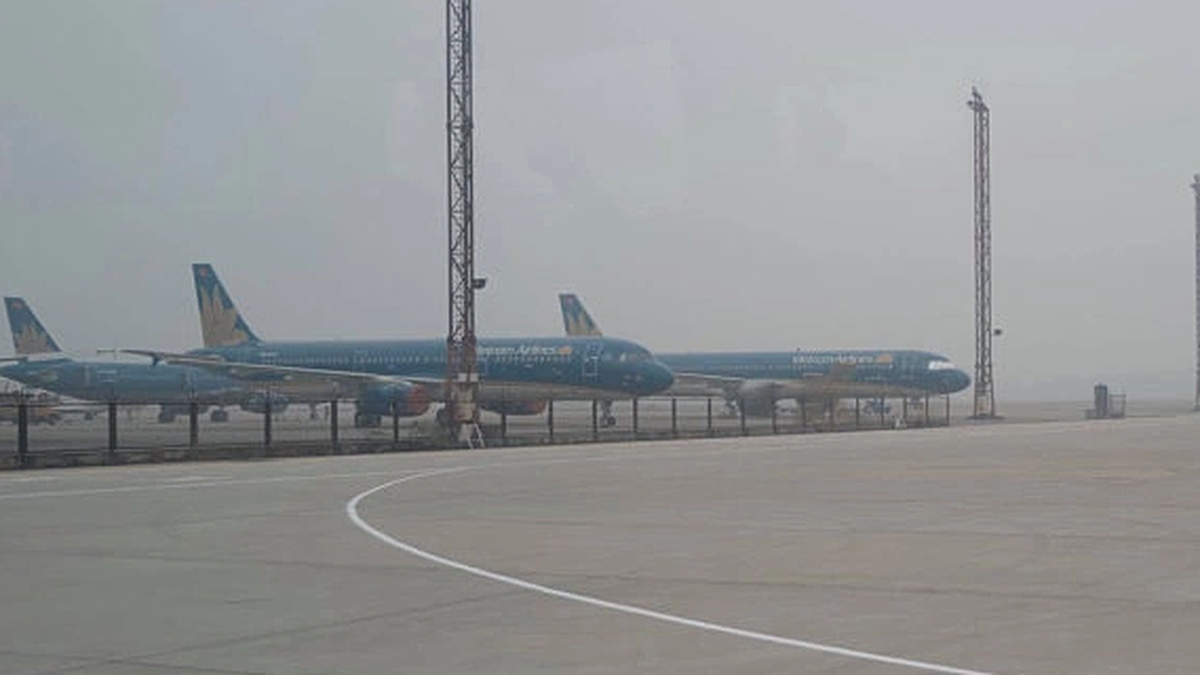

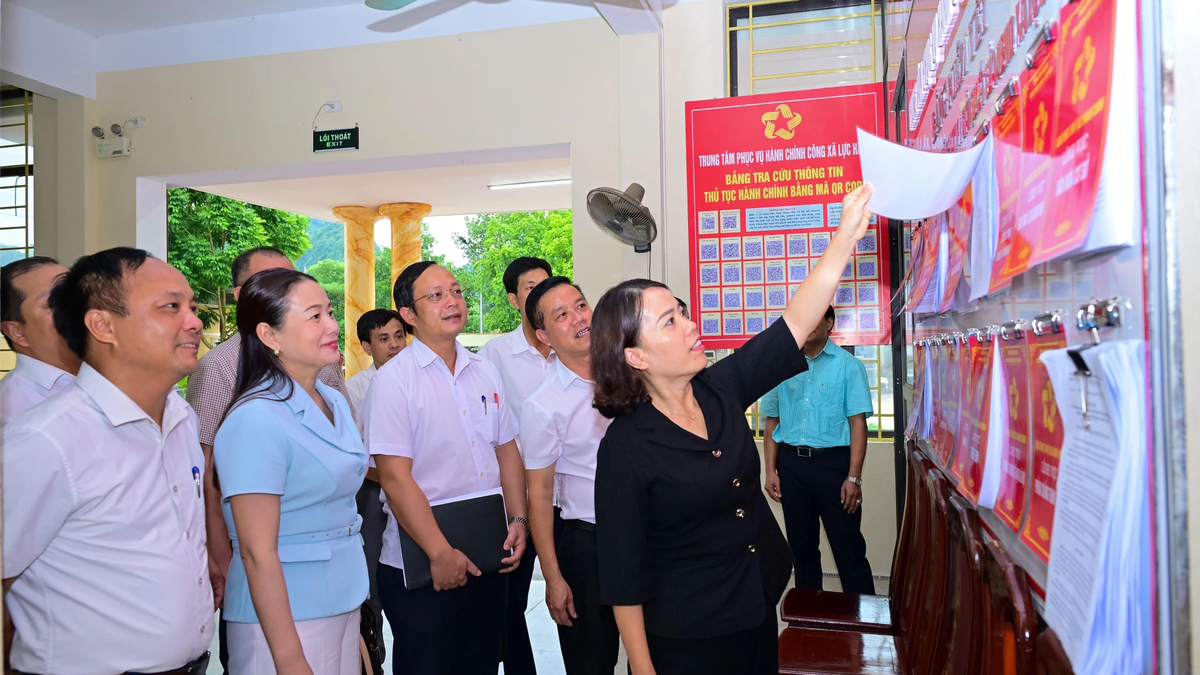

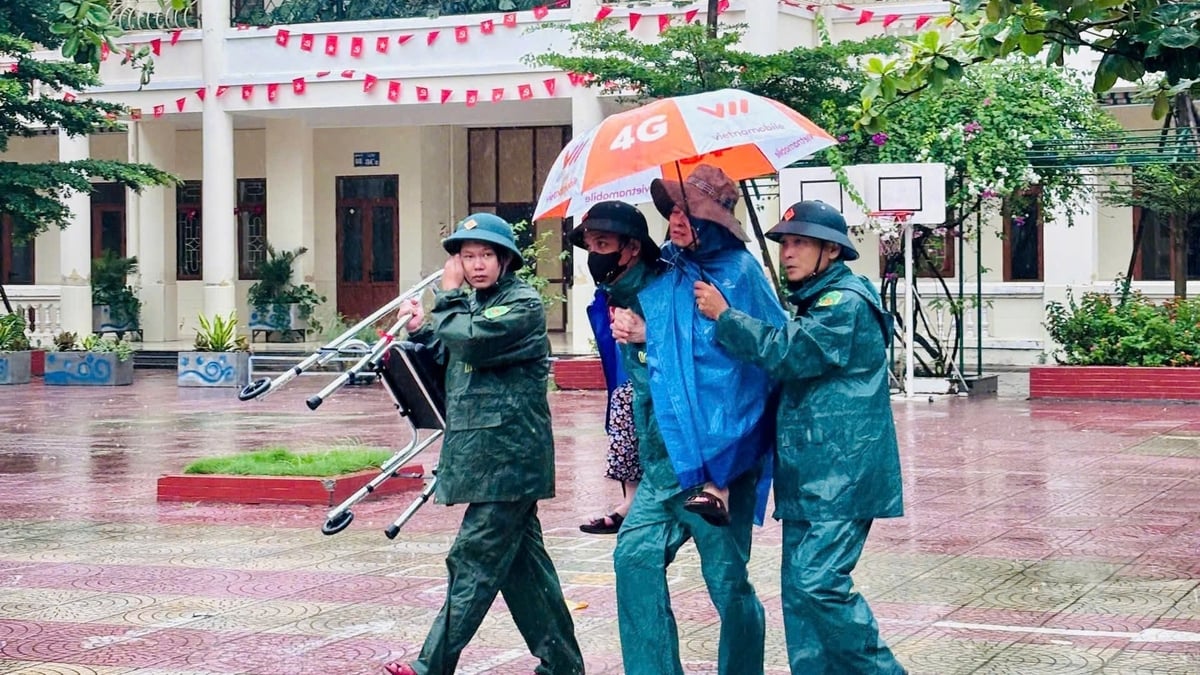
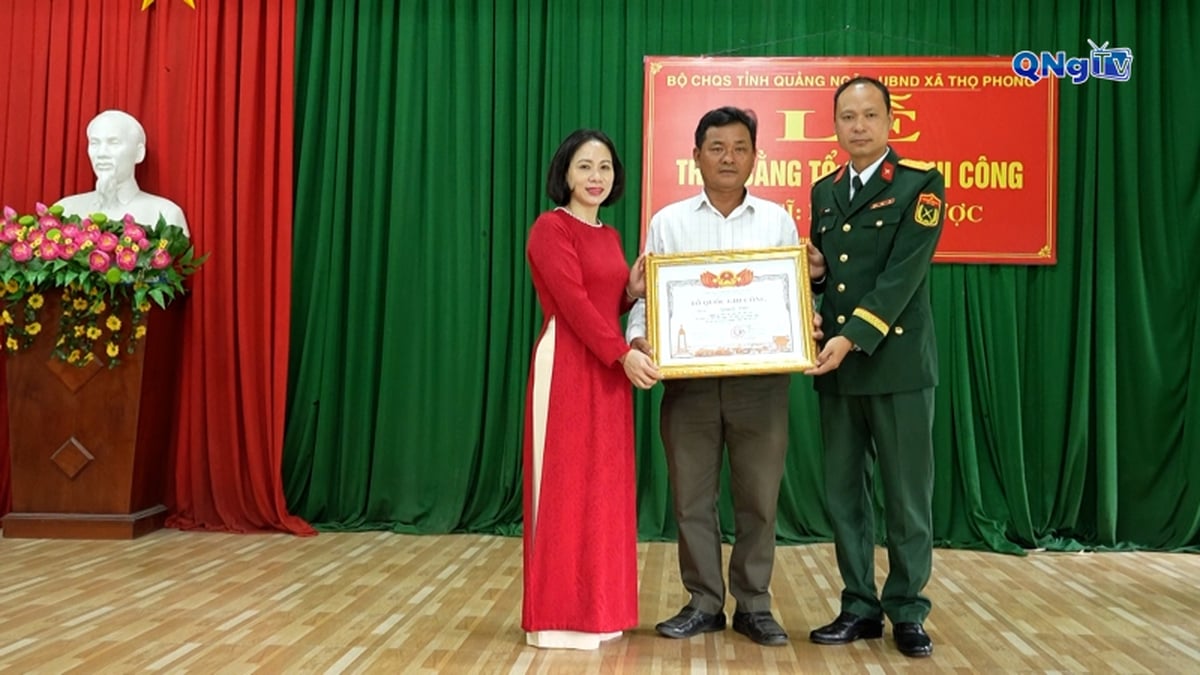














![[Photo] National Assembly Chairman Tran Thanh Man visits Vietnamese Heroic Mother Ta Thi Tran](https://vphoto.vietnam.vn/thumb/1200x675/vietnam/resource/IMAGE/2025/7/20/765c0bd057dd44ad83ab89fe0255b783)












































































Comment (0)